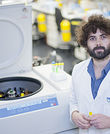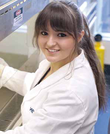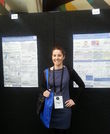Prof A Richard Kitching
Group Leader
Department of Medicine - Monash Medical Centre
Monash University
Richard.Kitching@monash.edu
Contract research opportunities
My laboratory runs and number of different pre-clinical models of kidney disease, some of which are unique.I lead the Monash Vasculitis Registry and Biobank, from my clinical work at the Monash Vasculitis Clinic.
I established and Chair the Australia and New Zealand Vasculitis …
Latest News
2019: Defining a link between a plasmid-derived protein and loss of tolerance via molecular mimicry, published by my lab in Nature Communications.
https://www.nature.com/articles/s41467-019-11255-0
2018: The definitive review article on HLA and the kidney in Nature Reviews Nephrology
https://www.nature.com/articles/s41581-018-0057-8
2017: The first mechanistic explanation of how HLA protects from the risk of autoimmune disease, by my Lab in collaboration with Prof Jamie Rossjohn and other Monash Collaborators.
https://www.nature.com/articles/nature22329
Research Activities
Autoimmune vasculitis often causes Drugs that are current standard of care have significant toxic effects - without a better understanding of how disease occurs it will be difficult to rationally apply or develop new treatments. Prof Kitching's research aims to help understand the pathogenesis of immune renal disease. He has made important contributions to our understanding of how leukocytes mediate kidney disease in several areas.
- T cell epitopes in autoimmune vasculitis and autoimmune renal disease, their relationship to HLA and tolerogenic strategies
- The fundamental biology of loss of tolerance
- How T helper cells direct nephritogenic immune responses.
- How autoreactive T cells mediate injury in anti-neutrophil cytoplasmic antibody (ANCA)-associated vasculitis.
Techniques/Expertise
Autoimmune vasculitisImmune kidney disease
Human samples
Mouse models of Disease
Defining antigen specific responses
Disease Models
1) Our group uses a variety of models of murine glomerulonephritis, some of which are unique to our group.These include autoimmune and non-autoimmune models, and models mediated by humoral
and cellular effectors.
We model all major types of rapidly progressive glomerulonephritis: anti-glomerular basement membrane disease, lupus nephritis and ANCA-associated vasculitis
2) We study acute kidney injury using murine models of cisplatin-induced acute kidney injury and unilateral and bilateral ischemia reperfusion injury
3) Although not currently a major research focus, renal fibrosis using murine unilateral ureteric obstruction as been used in the recent past.
Genetically Modified Organisms
1) Mice genetically deficient in a number of different elements of the immune system2) HLA transgenic mice
3) TCR transgenic mice specific for myeloperoxidase



































